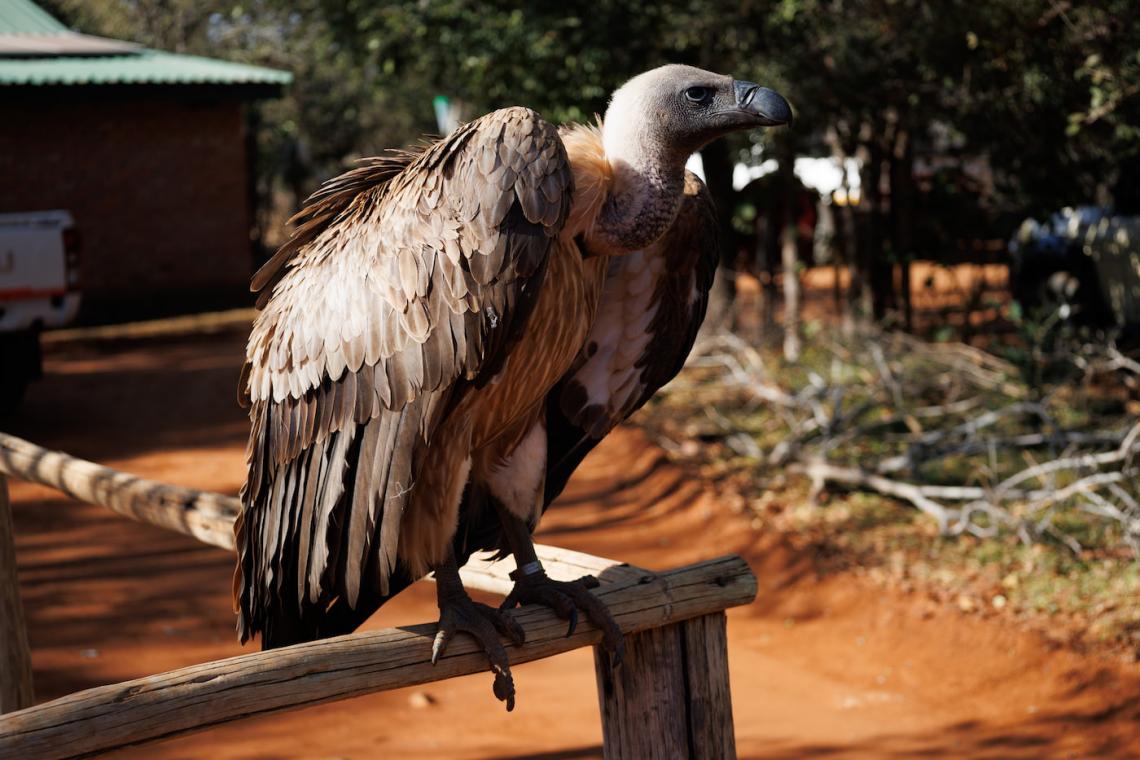The Zimbabwe-based Victoria Falls Wildlife Trust is a crucial conservation player in the 520 000 km² Kavango-Zambezi Transfrontier Conservation Area.
The headquarters of the Victoria Falls Wildlife Trust are quiet this afternoon. Somehow, I’ve managed to arrive on a day when no animals are in the rehab centre and be the sole visitor taking the tour. My host, communications manager Melusi Thebe, is unperturbed.
Tomorrow is another very full day; he says as he leads me into the interpretive centre – a classroom-style room with posters on the walls and rows of plastic chairs. The calm is deceptive; as Melusi lays out the trust’s scope of work, it dawns on me that this is the frontline.
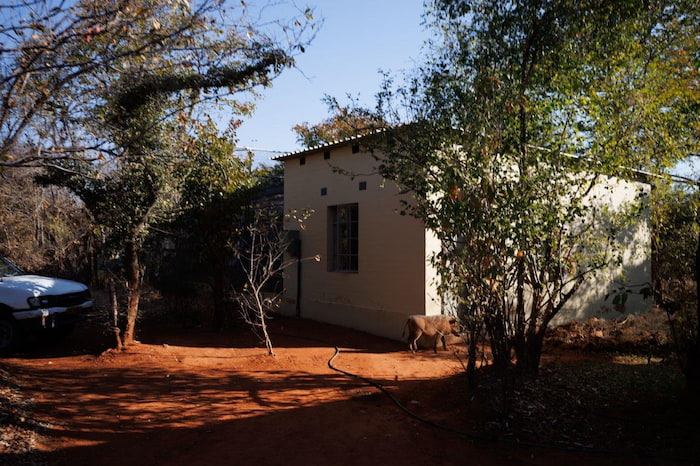
The trust is located in a small complex located minutes from Victoria Falls
Here are just a few of the VFWT's achievements:
Introduced predator-proof bomas to local livestock farmers, preventing animal loss to predation.
Successfully darted and dehorned rhinos for conservation purposes.
Administered rabies vaccinations to animals and removed snares.
Distributed fuel-efficient rocket stoves to communities, helping to reduce deforestation.
Developed innovative tools like the chilli gun to deter elephants from entering croplands.
Established a new test for lion genetics to aid in wildlife forensics and anti-poaching efforts.
Wildernesses worldwide are at their most fragile, but in places like Zimbabwe, where most citizens live in extreme poverty, natural ecosystems have taken a beating. Forests have been razed for fuel, and wildlife has been exploited for hunting and poaching. The trust is one of the organisations fighting to hold back the tide, as it has done for 15 years.
Since 2008, it has evolved into a conservation effort that works with local communities and related organisations to conserve habitats, find scientific wildlife management solutions and improve animal health. It has registered sister charities in the US and UK, and CEO Jessica Dawson heads the team.
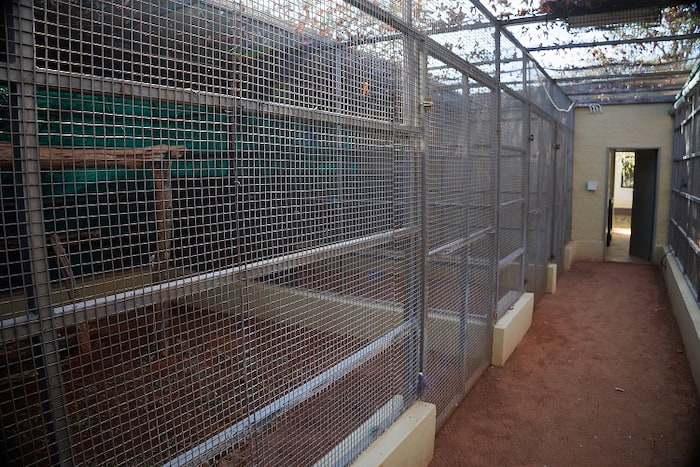
The trust’s high-care rehabilitation centre regularly takes in everything from hornbills to aardwolf, baby baboons to bushbabies.
The heart of operations lies within a 2,000-ha private game reserve home to Wild Horizons, The Wallow Lodge and The Elephant Camp. Operations run from a small complex on the outskirts of the tourism hub from which the trust takes its name. It includes an interpretive centre, added last year; a wildlife treatment and rehabilitation centre; a laboratory; and offices. From here, its projects cover amongst others, wildlife disease and forensics, wildlife research and species protection and community outreach.
To an outsider like me, their task seems impossible, given that the trust, empowered by partnerships and 25 permanent employees, works across the 520 000 km² Kavango-Zambezi Transfrontier Conservation Area (KAZA TFCA) – the world’s largest of its kind. This mega site reaches into five countries – Angola, Botswana, Namibia, Zambia and Zimbabwe. And if that wasn’t complex enough, incorporates protected parks and forests, game and wildlife management areas and communities. The VFWT laboratory is the only certified forensics facility in the entire region.

The trust’s laboratory is the only registered facility of its kind in the region.
No surprise then when the trust’s Zimbabwe board chairman Bruno de Leo concedes in his latest annual report that 2022 was “another challenging year …[of] testing conditions”.
Nonetheless, the organisation continues to rack up significant successes. Where it started introducing local livestock farmers to predator-proof bomas in 2016, no animals have been lost to predation.
For last year alone, some highlights include 42 rhinos being darted for notching and some dehorning, six being fitted for transmitters and two being translocated to a new founder population. 1,500 doses of rabies vaccination were administered, and 42 snares were removed, bringing the total to 150 since 2018.

Visitors to the trust’s facilities are introduced to the many tools it uses in carrying out its tasks, including tracking devices.
Furthermore, almost 600 children participated in the trust’s conservation education. At the same time, 4 300 fuel-efficient rocket stoves were distributed to help stem the illegal stripping of forests that happens at a breathtaking pace – estimated to be over two tons per day.
Melusi directs my attention to a cylinder on the table beside him. A hole at its base is stuffed with the small twigs needed to generate a powerful cooking flame. It’s astounding how such a simple, ingenious solution drastically impacted the lives of communities. Arrests for illegal collection of wood have plummeted since the project's inception.
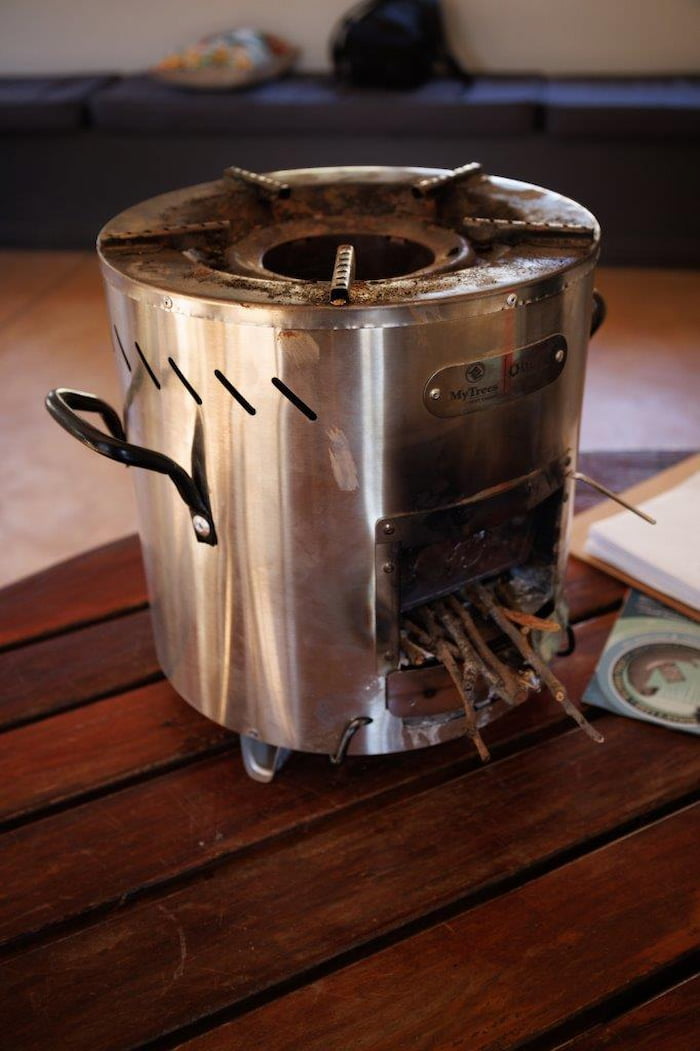
The distribution of rocket stoves has significantly impacted the collection of firewood in conservation areas.
Beside the stove is a metre-long assembly of PVC pipes. I’m intrigued. “It’s a chilli gun,” reveals Melusi. The traditional version employs an easily accessible propellant to fire potatoes, which uses ping pong balls filled with a chilli solution. They’re supplied to farmers to encourage elephants out of croplands. The trust also has an association with partners for making “chilli bricks”, which, when burned, act as an irritant, as well as chilli string and chilli rope fences.
Melusi wraps up his presentation and offers a walkabout. Halfway across the red-sand yard, I suddenly stop. An adult African White Backed Vulture is perched on a stump. “That’s Judge,” says Melusi. It was found as a fledgling, and its deformed wing meant it would never fly. The trust agreed to take it in, making it part of its education programme – and a valuable conversation starter. Zimbabwe is home to one of the largest breeding colonies in southern Africa but has seen a disturbing decline. The trust has found at least a 15% decline in breeding pairs and active nests from 2020 to 2021.
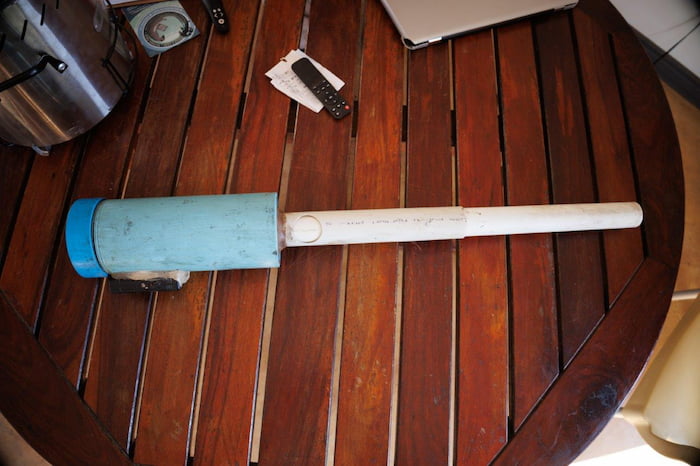
The “chilli gun” has proven a valuable tool for local communities to keep elephants out of croplands.
“The largest threat facing our vulture populations in northwest Zimbabwe remains the use of toxins to poison other wildlife species for the illegal wildlife trade and as a result of retaliatory poaching,” says the trust's latest annual report.
Next, we’re into the laboratory – a vital centre for the trust’s veterinary and forensic work in the region. It has most recently expanded its technical and diagnostic capacity, says Melusi, empowering bacteriology and additional molecular genetics work.
Amongst others, the trust’s laboratory has established a new test for lion genetics aided by the wildlife forensics network TRACE. This will enable the identification of different lion parts, where they came from, and possibly even allow the identification of individual lions.
My visit concluded with a quick inspection of typical tracking harnesses on display and the rehabilitation centre. For the trust, they’re more than halfway into a milestone year, a year anticipated to bring further growth and opportunities.
Much of that relies on the support it receives and the message that Melusi broadcasts to his full room of visitors on their way here again tomorrow.

